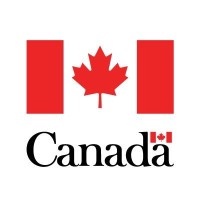
First Nation Infrastructure Fund (FNIF)
At a glance
- Up to 10% of project cost
- Unspecified
- Public administration
- Canada
- Non-profit
- Public or Parapublic institution
- For-profit business
- All revenue ranges
- All organization sizes
- Indigenous Peoples
- Culture and Arts
- Sports
- Other Recreation and Social Clubs
- Primary and Secondary Education
- Higher Education
- Emergency and Relief
- Environment
- Economic, Social and Community Development
- Housing
- Employment and Training
- Indigenous peoples
- Rural / Remote communities
- All structures
- Local
- Municipal
- Regional
- Provincial
- National
Overview
The First Nation Infrastructure Fund (FNIF) offers funding up to $10 million per recipient per year to improve infrastructure in First Nations communities, promoting environmental and quality-of-life enhancements. Eligible activities include the construction and enhancement of band administrative buildings, cultural facilities, and energy systems, among others.
Activities funded
- Construction and renovation of band administrative buildings.
- Development of cultural and recreational facilities, including community centers, arenas, and museums.
- Implementation and support of fire protection measures, including education, training, and infrastructure improvements.
- Development and enhancement of structural mitigation projects to address natural hazards and climate change impacts.
- Expansion of connectivity infrastructure to improve regional broadband and telecommunication access.
- Implementation of energy systems projects, including retrofits and connections to power grids.
- Construction and improvement of public roads and bridges within and beyond First Nations communities.
- Development of solid waste management infrastructure to enhance recycling and waste reduction.
- Investment in planning and skills development for sustainable community infrastructure projects.
Eligibility
- Indigenous beneficiaries: Bands or settlements on land, reserves, or trusts.
- First Nations or Inuit governments referred to in a self-government or land claims agreement.
- District councils or chief councils, tribal councils, organizations, societies, associations, or institutions.
- Corporations where major shareholders are First Nations or Inuit.
- Partnerships with First Nations or private eligible recipients.
- Provincial or territorial governments and agencies, including school boards.
- Municipalities and local authorities established by provincial governments.
- Universities, colleges, and other training institutions participating in training and certification programs.
- Projects must align with a community plan or strategy for infrastructure.
- Projects must demonstrate improvement to community health and safety.
Who is eligible?
The First Nation Infrastructure Fund (FNIF) is available for a range of Indigenous and non-Indigenous entities. Eligible applicants include:- Indigenous beneficiaries such as Bands or settlements on reserves, First Nations, or Inuit governments involved in self-government or land claims agreements.- Tribal councils, district councils, and chief councils.- Organizations, societies, associations, and institutions focused on Indigenous communities.- Corporations where the major shareholders are First Nations or Inuit.- Partnerships and private enterprises collaborating with First Nations.- Financial institutions offering bridge financing.Public and non-Indigenous entities can also apply, including:- Provincial or territorial governments and agencies, including provincial school boards.- Municipalities involved in agreements for service provision like water and wastewater management.- Universities, colleges, and training institutions involved in enhancing water and wastewater operator training and certification.These entities must also demonstrate the relevance of their project to First Nations communities and abide by the specific grant requirements.
Eligible expenses
- Capital costs for acquiring, constructing, or renovating a tangible capital asset.
- Fees paid to qualified professionals, technical personnel, consultants, and contractors specifically for surveying, design, engineering, manufacturing, or construction of project infrastructure assets and related facilities.
- Costs of environmental assessments, monitoring, and follow-up programs required by the Impact Assessment Act for an eligible project.
- Incremental costs related to strengthening the ability of First Nations communities to develop their infrastructure maintenance and planning capacities.
- Eligible project costs incurred after conditional project approval.
- Other costs considered necessary for the successful implementation of a project, approved in advance by ISC.
- Incremental costs of First Nation employees or equipment if economically feasible as agreed by ISC and outlined in writing.
- Salary costs for planning and skills development projects if incremental and approved in writing by ISC's regional office.
How to apply
Study eligibility and objectives
- Understand the specific infrastructure categories and project eligibility
- Familiarize yourself with the fund's objectives
- Learn about the impact and benefits of eligible projects
Prepare and submit FNIIP
- Compose a First Nations Infrastructure Investment Plan (FNIIP)
- Identify eligible projects that align with community priorities
- Submit the FNIIP to ISC regional office by September 30
Assess and identify projects
- ISC and First Nations assess project plans for eligibility
- Projects may be identified outside the FNIIP process
- Regional engagement may be needed for further assessment
Verify mandatory requirements
- Ensure that all mandatory project requirements are met
- Verify alignment with community plans and strategies
- Check compliance with federal and provincial regulations
Compile and prepare application
- Compile all necessary documents for submission
- Ensure eligibility criteria are thoroughly addressed
- Prepare the final application package for FNIF
Submit application to ISC
- Submit the completed application to ISC
- Ensure submission before any applicable deadlines
- Await confirmation of receipt and further instructions
Additional information
- Recipients of funding from the FNIF are also eligible to receive funding from other federal sources.
- ISC headquarters reviews the regionally prioritized project list to ensure adherence to program guidelines.
- Regional engagement with First Nations or other partners is conducted as needed.
- For additional information on service standards and timeframe, visit Indigenous Services Canada Transfer Payment Service Standards.
- For additional details, visit Transfer Payment Program Terms and Conditions: Contributions to support the construction and maintenance of community infrastructure.
- For more details on the levels of service, refer to the Appendices of the Roads and Bridges directive.
- For additional funding available for solid waste management projects on reserve, visit First Nations Waste Management Initiative.
Frequently Asked Questions about the First Nation Infrastructure Fund (FNIF) Program
What is the First Nation Infrastructure Fund (FNIF)?
How much funding can be received?
Who is eligible for the First Nation Infrastructure Fund (FNIF) program?
What expenses are eligible under First Nation Infrastructure Fund (FNIF)?
Who can I contact for more information about the First Nation Infrastructure Fund (FNIF)?
Where is the First Nation Infrastructure Fund (FNIF) available?
Is the First Nation Infrastructure Fund (FNIF) a grant, loan, or tax credit?
More programs like this
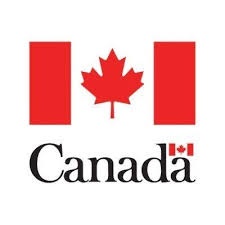
Canada Public Transit Fund
Housing, Infrastructure and Communities Canada
Active Transportation Fund
Housing, Infrastructure and Communities Canada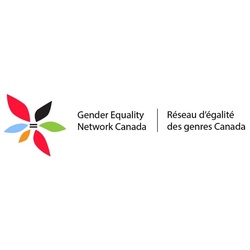
Equality for Sex, Sexual Orientation, Gender Identity and Expression Program
Women and Gender Equality Canada (WAGE)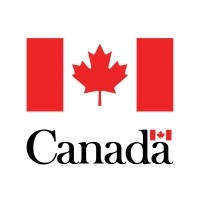
Crime Prevention Action Fund (CPAF)
Public Safety Canada (PSC)
Substance Use and Addictions Program (SUAP)
Health Canada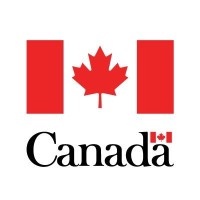
Rail Safety Improvement Program (RSIP) - Research and Education Component
Transport Canada
Enhanced Road Safety Transfer Payment Program (ERSTPP)
Transport Canada
Age Well at Home (AWAH) - In-Home Support Pilot Project Stream
Employment and Social Development Canada (ESDC)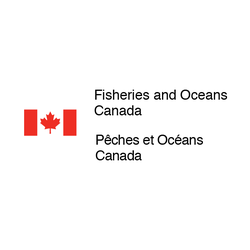
Canada Nature Fund for Aquatic Species at Risk (CNFASAR)
Fisheries and Oceans Canada (DFO)